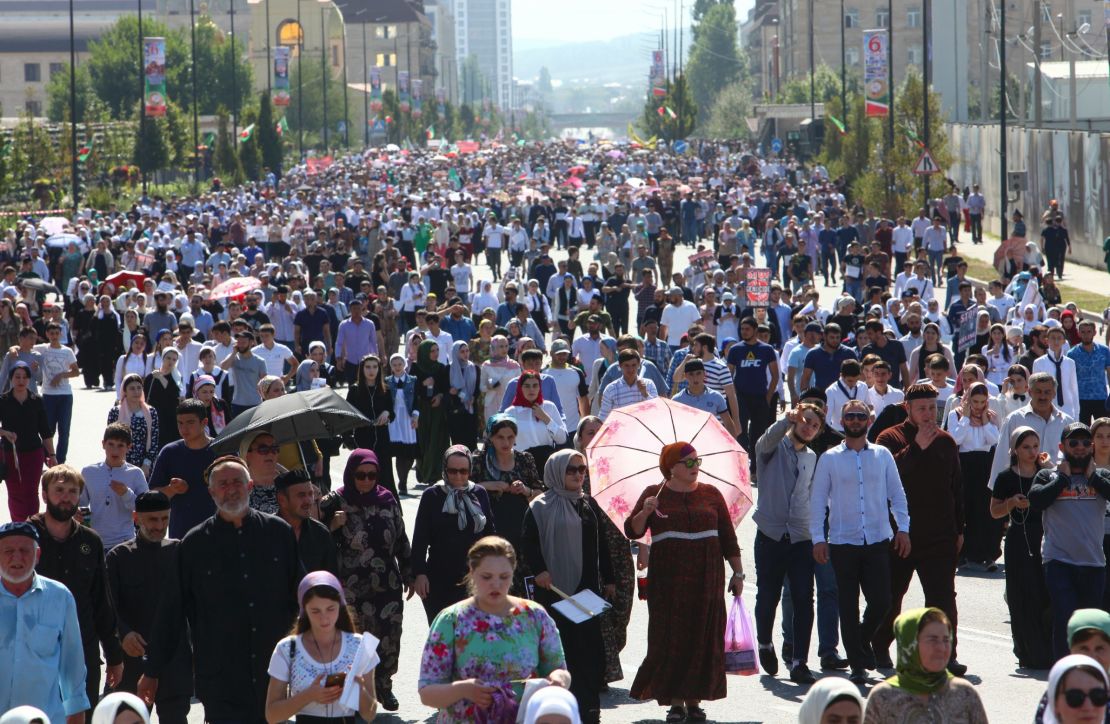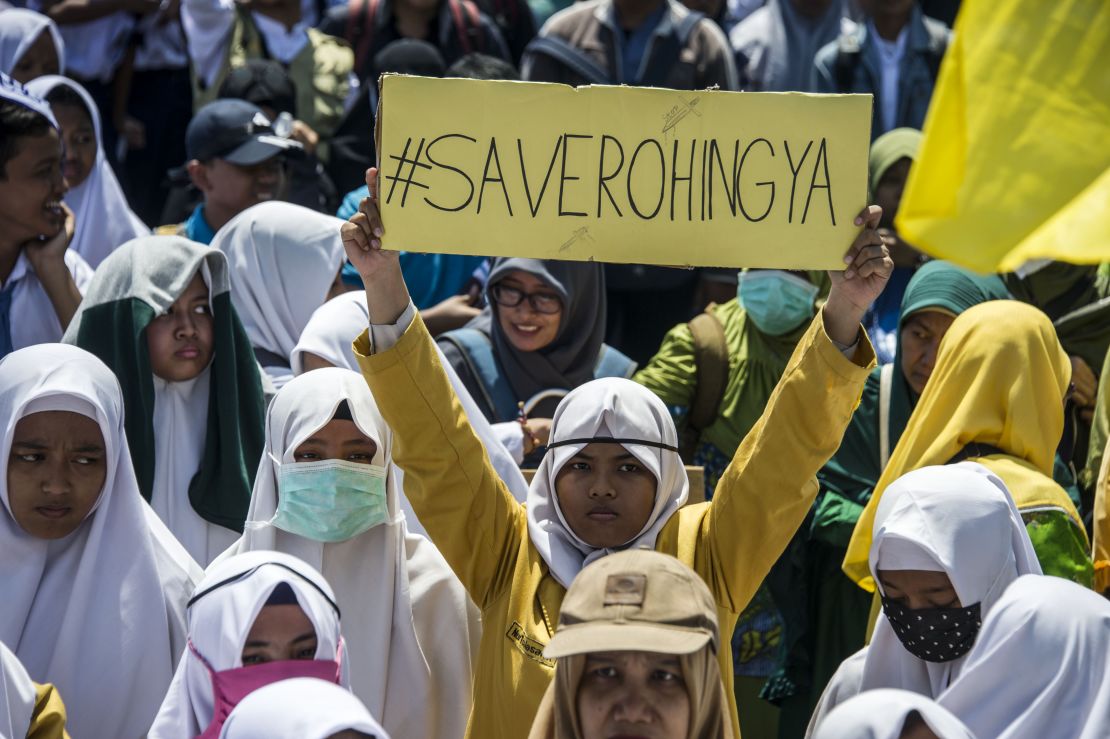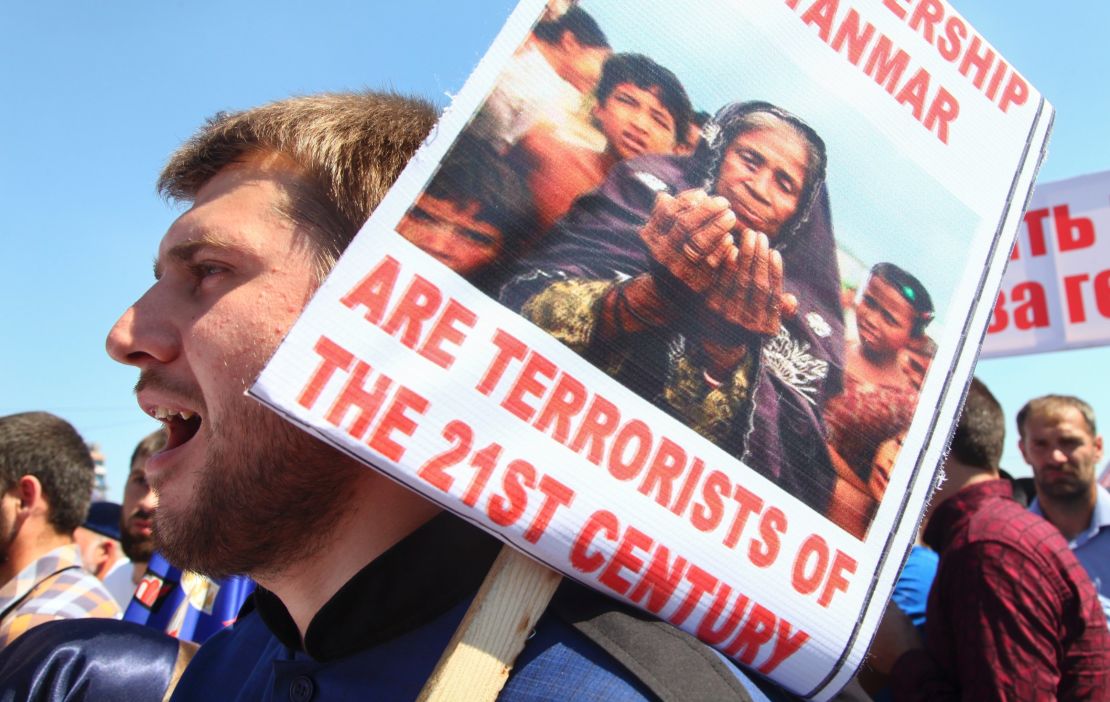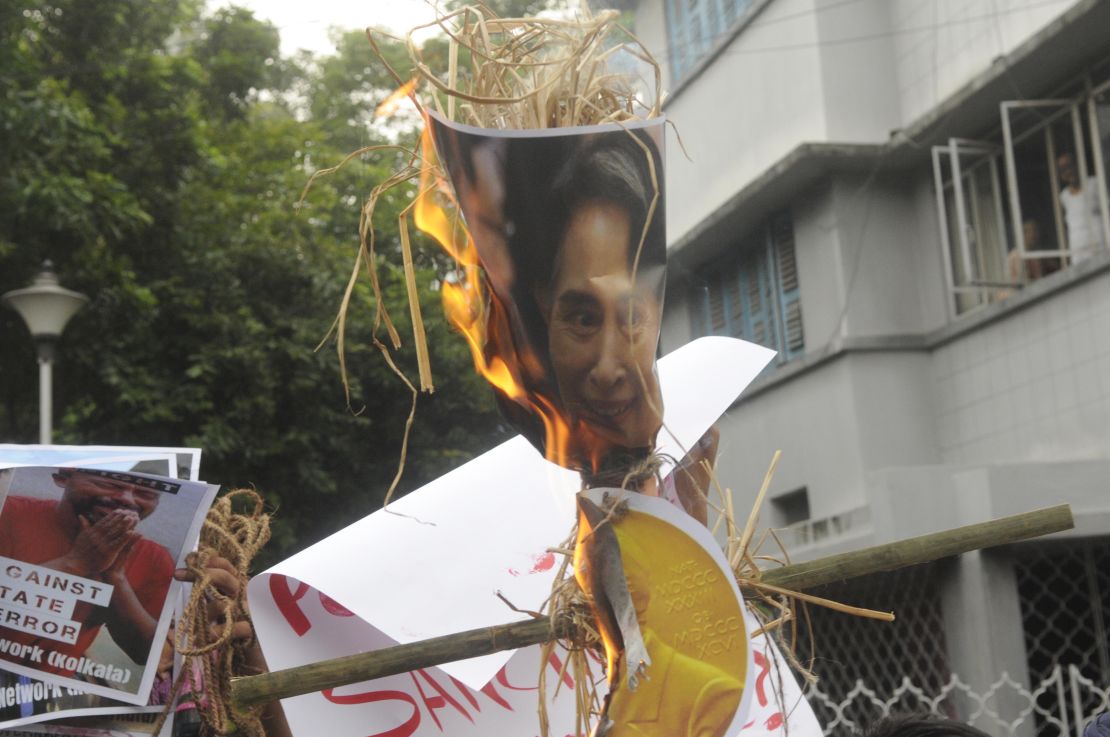Story highlights
New: UN secretary-general condemns "vicious cycle of violence"
123,600 Rohingya have fled escalating violence in Rakhine, Myanmar
Myanmar is facing growing condemnation from the Muslim world over its failure to halt the violence directed toward the minority Rohingya ethnic group, amid protests across the globe.
So far, an estimated 123,600 Rohingya have fled to neighboring Bangladesh to escape escalating violence in their native Rakhine State, according to a United Nations official in Bangladesh.
Leaders of countries with majority Muslim populations including Malaysia, Indonesia, Bangladesh and Pakistan have led efforts to increase pressure on the Myanmar government.
Malaysia’s foreign minister summoned Myanmar’s ambassador to express its concern, according to state-run Bernama news, and Indonesian Foreign Minister Retno Marsudi held talks Monday with Aung San Suu Kyi, the de facto leader of Myanmar. Marsudi was due to meet with her counterpart in the Bangladeshi capital Dhaka on Tuesday.
“(Indonesia) speaks not only on behalf of global Muslim concerns but also ASEAN (the Association of Southeast Asian Nations). It feels a real sense of urgency,” Herve Lemahieu, research fellow at Sydney’s Lowy Institute, told CNN.
In contrast, Western leaders have have so far appeared reluctant to speak out strongly on the issue. According to Lemahieu, the Western world’s attention is still fixed elsewhere in Asia, on the nuclear standoff in North Korea.
“On the other hand, people, particularly in the West, are torn between their affection with the cause of Aung San Suu Kyi and then the very gory reality,” he said.
United Nations Secretary-General Antonio Guterres released a statement Tuesday saying he is “deeply concerned about the security, humanitarian and human rights situation in Myanmar’s Rakhine state.”
Guterres said “the authorities in Myanmar must take determined action to put an end to this vicious cycle of violence and to provide security and assistance to all those in need.”
Also Tuesday, UNICEF released a statement saying that, of the Rohingya who have crossed into Bangladesh, “as many as 80% of them are women and children.”
“In Bangladesh, UNICEF is scaling up its response to provide refugee children with protection, nutrition, health, water and sanitation support,” the organization said.

The government of Myanmar, which is also known as Burma, blames “terrorists” for starting the violence. Rohingya militants killed 12 security officers in border post attacks almost two weeks ago, according to state media, intensifying the latest crackdown.
The Rohingya, who are denied citizenship by Myanmar, are considered some of the most persecuted people in the world. The predominantly Buddhist country says they are Bangladeshi and Bangladesh says they’re Burmese.
It is the second time in less than a year that a military crackdown has led to a mass exodus.
Phil Robertson, deputy director of Human Rights Watch, said while efforts were being made by the UN and through diplomatic channels, more nations needed to speak out.
“(Countries) could say more and they should say more. The government of Burma takes a look at these things and they count what people are saying publicly versus what they’re saying privately,” he said.

Protests across world for Rohingya
In solidarity with the Muslim minority, tens of thousands of people marched through the Chechen Republic’s capital city of Grozny.
According to a government statement, the protest in Chechnya, which is part of the Russian Federation, was attended by more than a million people.
Protests in Chechnya are heavily regulated and typically orchestrated by authorities, said former Moscow Bureau Chief Jill Dougherty, who added that the protests could be an effort by Chechen leader Ramzan Kadyrov to position himself as a global Muslim leader.
On his official Instagram account, Kadyrov labeled attacks on Rohingya as “genocide.”
There were reports of smaller protests outside Myanmar embassies in countries around the world, including Indonesia, Pakistan, Germany and Australia.
Pakistani Foreign Minister Khawaja Muhammad Asif on Monday expressed “deep anguish” at the continuing violence, which he termed “deplorable.”
Even the Afghan Taliban issued a statement against the bloodshed, using its channel on the Telegram app. “We similarly call on Muslims worldwide to not forget these oppressed brothers of yours,” read the message.
Indian Prime Minister Narendra Modi was due to arrive in Myanmar Tuesday for talks with the country’s leadership, including Suu Kyi, but analysts said it was unclear how big a priority the Rohingya were. The visit was scheduled before the latest outbreak of violence.
“As far as the Rohingya issue is concerned, yes, it is an issue for Myanmar, yes, it is an issue for the region, including India, and in the discussions with his counterpart I’m sure he’ll bring up the issue,” said K. Yhome, senior fellow at India’s Observer Research Foundation.

Refugees trapped, thousands flee
Rohingya refugees have continued to pour over the border into Bangladesh ever since the latest outbreak of violence on August 25, according to the United Nations.
Speaking Friday, a spokesman for Guterres said the UN head was “deeply concerned” and urged calm.
Satellite images released by Human Rights Watch showed entire villages burned to the ground in the ongoing clash between Myanmar military forces and Rohingya militants.
Refugees are bringing with them horrific stories of devastation and murder from inside Rakhine State. “Everything, destroyed by the military. Now we are without food or blankets … Genocide is going on there,” refugee Mohammed Harun told CNN.
Just across the border, activists claim at least another 30,000 refugees are stuck in the mountains along the Naf river, unable to cross into Bangladesh but afraid to return home.
Video provided to CNN by activists showed men, women and children stranded in dense jungle, making shelters out of sticks and sheets.

“The human lives that are most vulnerable must be rescued immediately without delay,” executive director of Burma Human Rights Network (BHRN), Kyaw Win, said in a statement.
‘We will rape you and kill you’
Amid the protests, the BHRN released a new report into the methodical persecution of the minority Rohingya by Myanmar’s government.
“The National League for Democracy (NLD) has never spoken up in defense of the human rights of the Rohingya and Daw Aung San Suu Kyi’s government has kept in place all laws and policies which discriminate against Rohingya,” the report’s conclusion said.

In writing the report, the activists conducted more than 350 interviews over an eight-month period from people across Myanmar, including inside Rakhine State, where access is often restricted.
Among those interviewed were witnesses to the 2016 Myanmar military crackdown, which led to an exodus of refugees across the border into Bangladesh.
“The military entered our hamlet, brought together all the women and took them to the … forest,” two sisters aged 16 and 14 told interviewers after fleeting to Bangladesh.
“They beat some women very badly while asking, ‘Where are the guns that were taken from our barracks? Tell us or we will rape you and kill you’.”
Others described the campaign of theft and property destruction that had been directed at the Rohingya.
“They tied people to poles inside the home then burnt down the homes,” 13-year-old Win Maw told interviewers, adding that he doesn’t know if his parents are alive or dead.

















